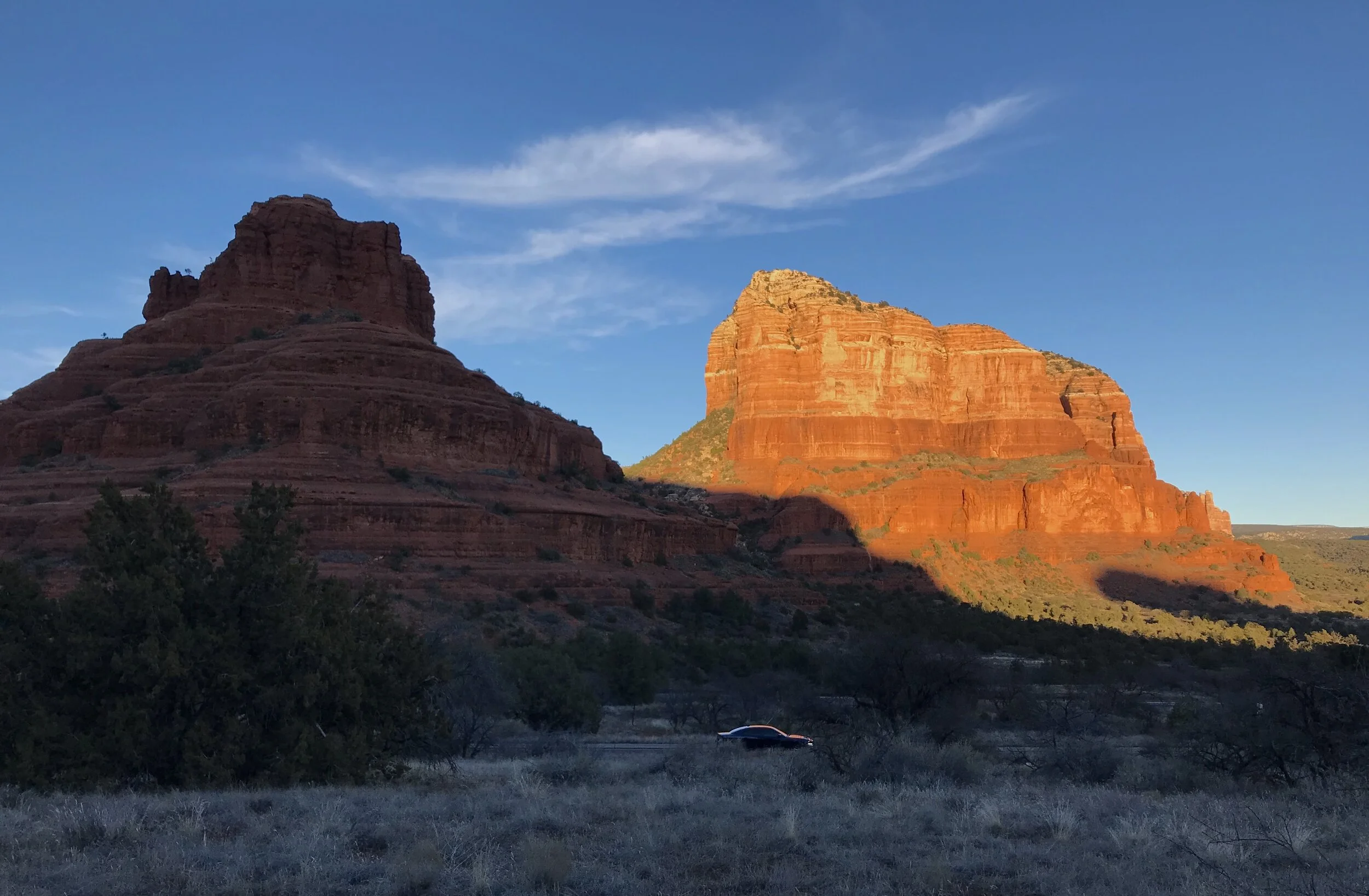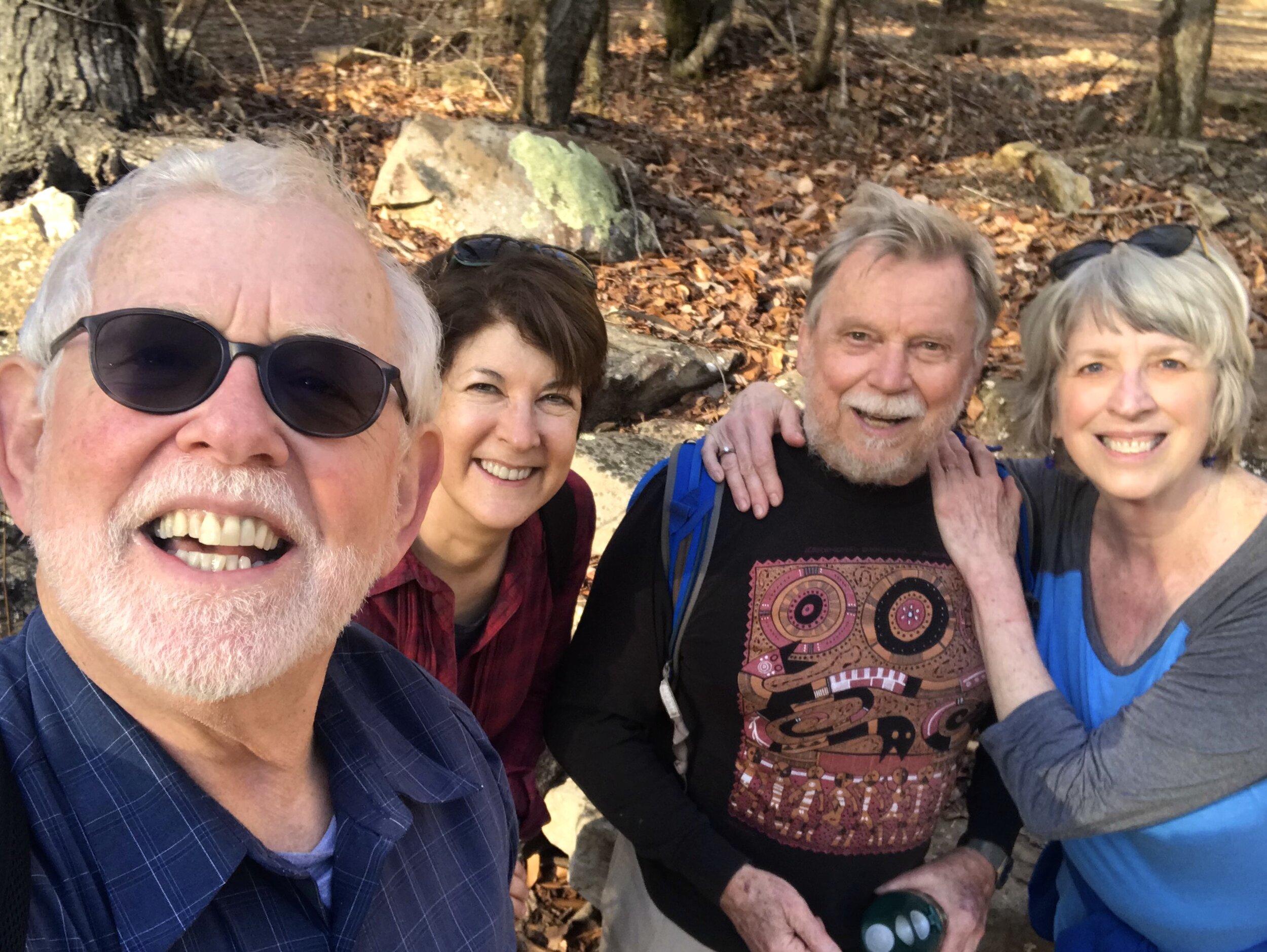Most of us have an unlived life, maybe several: the path not followed, the risk not taken, the love who got away.
Bell Rock and Cathedral Butte, Sedona, Arizona
It’s been said that if you go to red rock country in Arizona three times, you’ll end up moving there. And indeed, as my husband and I hiked mountains and mesas that seemed to emit (rather than simply be) various shades of copper, we started imagining ourselves in the Sedona area for the rest of our lives. The air in northern Arizona sits lightly on the skin; it isn’t weighed down by humidity. Without trees, the vistas are endless. From Mescal Mountain, you can see Cathedral Rock miles away.
We met a couple on the trail who moved to Sedona from Indianapolis two years earlier. The guy said he’d lost thirty pounds just by hiking. My husband and I looked at each other. We too could hike our way back to our former svelte selves!
“New places and people change us in ways we can’t anticipate.”
He would finally take up carpentry (though there’s a glaring lack of wood in Arizona). I’d release myself from the grueling search for a publisher. I’d learn to read Tarot cards, and my spot-on readings would help people get clarity about their lives. My business would boom! As my husband and I wound around the precipitous side of Mescal Mountain, I mentally decorated my office: it would be a Zenlike space without the typical beaded curtains, scented candles, and paisley bedspreads adorning the walls. I would never drape myself in bracelets and scarves. Instead, I would—
The popular HGTV show “House Hunters” popped into my mind. Whenever people tour houses that appeal to them, they always say, “I can see myself here.” They’re trying on different houses for size; in Sedona, my husband and I were trying on a different geography for size, a geography we fantasized would mold us into our ideal selves.
I do this every time I travel. When I joined the Peace Corps and left for Africa, I imagined I would become a health-care super-hero . (I didn't.) At various times in my life, I’ve imagined myself as a scholar in an ivory tower in Boston, as a devoted yogi at an ashram in Pennsylvania, as a successful woman of letters living in a cozy flat in London. In each scenario, I appear as a better version of myself.
Two truths hold: 1) Wherever we go, there we are, and 2) where we go changes us.
Geography, climate, culture, and relationships matter. If I hadn’t lived in Africa, what would my life look like now? Would I be a wife? A mother? Photographer? Writer? The equation is muddy. New places and people change us in ways we can’t anticipate. They bring forth different aspects of the self, but they can’t bring forth something that isn’t already there. Dormant perhaps, but there.
Within hours of arriving home, my husband and I knew we wouldn't be moving to Arizona, as compelling as it was. We’ve already moved several times, so we realize we’re no more likely to make drastic changes in our habits in Arizona than we are in Tennessee. And here, we have a beautiful if not perfect geography, enough culture to feed us, and friends we love and who love us. But the next time we travel, we’ll once again imagine living an alternate life far from home.
If you could move anywhere, where would it be? What aspects of yourself would that place bring out? What keeps you where you are?
Hiking with friends at Big Soddy Creek outside of Chattanooga, Tennessee







